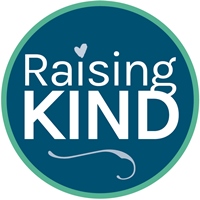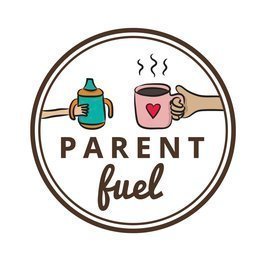
I know not everyone agrees in our country. Some of us are pleased that President Donald Drumpf wants to turn his campaign promises into reality. Others are scared, angry, frustrated and worried. Regardless, I’m guessing the tension makes us all weary.
For me, the anxiety I’ve experienced since Inauguration Day adds difficulty to my main job: parenting my children. Every morning my two daughters wake up and look to me for leadership. If I’m completely undone by fear or act from a fearful place, they suffer most. But that doesn’t make my fear any less real.
Looking for clarity on how to deal, I spoke with Meghan Leahy, a certified parenting coach and Q&A columnist for "On Parenting" at The Washington Post. Her advice: Name your feelings instead of hiding them.
“Our kids are constantly tuned in to our energy and our emotions,” she says. “Kids’ antenna are always up, and their brains are unconsciously asking, ‘Am I safe? Am I safe? Am I safe?’”
 They can tell the difference between what Mom says and how Mom feels so, Leahy says, don’t fake it. “You don’t need to hide worry or hide fear,” she says. “You do need to name it while showing a modicum of control.”
They can tell the difference between what Mom says and how Mom feels so, Leahy says, don’t fake it. “You don’t need to hide worry or hide fear,” she says. “You do need to name it while showing a modicum of control.”
It’s this control bit that I find hard to master. If, for example, I spend too much time on Facebook lately, I feel trapped, like I’m in a lion’s den with no escape. Unfortunately, sobbing while scrolling social media isn’t a good perch to parent from.
“If you create frantic energy and your kids come home [after your Facebook feeding frenzy], that creates panic,” Leahy says. But don’t blame yourself for finding it hard to ignore all that tasty clickbait. It’s like seeing a car wreck, says Leahy. It’s hard not to look.
You can escape “that media fear factory,” she adds, repeating that too-true mantra: Now that we know better, we have to do better. If social media ratchets your anxiety to disaster levels, install a media blocking app on your devices.
Leahy walks the walk when it comes to limiting social media. At her request, her husband blocked Facebook on Leahy’s phone; only he knows the code that disables it. She uses a social media software blocker on her work computer. Google “social media blocker” and you’ll find many apps (many of which are free); a few names to look for: Cold Turkey, Freedom and SelfControl.
“Maybe you don’t mind looking at Instagram, but Twitter and Facebook turn [your anxiety] up. You have to help yourself from a behavioral standpoint,” says Leahy.
Another way to feel less panicked is to engage in activism, she adds, but know your limits. “Treat activism as a part-time job,” she says. “If you make being an activist your full-time job, you are of no service to the very people you are being an activist for: your children.”
While anger may feel good (particularly when you feel out of control), underneath is a deep grief and vulnerability, Leahy says. Being a parent means taking good care of those feelings when you’re alone so you can take good care of your children when they’re in your care.
“If you were alone and 20 and eating ramen in your apartment, wail away!” says Leahy. Otherwise, figure out how much activism you can add to your life. Sometimes that means doing one thing a day or a few things a week; other times that means marching all day before attending a town hall with your representative that evening.
And sometimes that means doing nothing at all. 
“Recently it was my husband’s birthday,” says Leahy, who lives in Washington, D.C. “While he was out with the kids, I planned on going to a march at The White House. But when the time came, I realized I could be a resentful marcher, or take a walk for self-care and shop for birthday dinner supplies.” That day, she decided not to march.
“Some days, the most some of us can handle is not doing harm to our loved ones, and that’s enough,” says Leahy. Being a parent involves extremely mature work, she adds. Living during anxious times adds a low but constant level of stress to our everyday lives. “Tuning out for a bit to do your work or take care of your family or yourself is not a denial of another person’s pain or the world’s problems.”
Leahy also recommends adding joy to your activism. “There’s enough anger, angst and fear already. Have a party to write postcards to your representatives with Red Vines and wine and listen to music. It’s OK to march and laugh. You can be a joyful activist; that’s a choice,” says Leahy.
Remember small acts on a local scale matter, too. “There is a never-ending need for good people to do good work in small ways,” Leahy says. “There’s always a soup kitchen, places where you can serve others.”
Identify what bothers you most — perhaps, for example, you’re concerned about education — and find a way to help — volunteer at your child’s school. “Find a small, tangible way to regain some power,” Leahy says. That might even be just having a simple conversation. “Whenever we sit across from a person, eye to eye, these large ideas become small and our brain feels like it can handle the world again.”
And when the fear does seep in at home, remind your kids that you can and you will always care for them. “We can’t necessarily guarantee safety sometimes, but we can always say, ‘I’m here, and we’re doing our best to take care of everyone we know and love,” Leahy says. “If we take care of ourselves and are able to treat others with kindness, I think we’ll make it through the next four years.”











